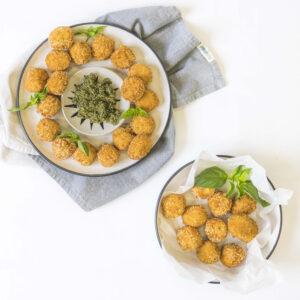How to Plan Inclusive Events with Safe Food Allergy Catering: Complete Caterer’s Guide
Planning an inclusive event that safely accommodates all guests’ dietary requirements has become essential in today’s diverse dining landscape. With food allergies affecting approximately 10% of Australians and dietary preferences continuing to evolve, event organisers face the challenge of creating memorable experiences whilst ensuring every guest feels welcome and safe.
The stakes are particularly high when dealing with food allergies, where a single oversight can result in serious health consequences. Beyond safety concerns, inclusive catering demonstrates respect for your guests’ needs and creates an atmosphere where everyone can fully participate in your celebration.
Professional caterers who specialise in food allergy catering Sydney understand these complexities and have developed systems to manage multiple dietary requirements without compromising on flavour or presentation. The key lies in thorough planning, clear communication, and working with experienced professionals who prioritise both safety and culinary excellence.
Understanding Food Allergies vs Intolerances: The Foundation of Safe Event Planning
The distinction between food allergies and intolerances forms the cornerstone of safe event planning. Food allergies trigger immune system responses that can range from mild discomfort to life-threatening anaphylaxis. Even trace amounts of allergens can cause severe reactions, making complete avoidance essential.
Food intolerances, whilst uncomfortable, typically involve digestive issues rather than immune responses. Lactose intolerance, for example, may cause bloating and discomfort but won’t result in the severe reactions associated with true allergies. However, both conditions require careful consideration when planning menus.
Common misconceptions can create dangerous situations. Some people believe that cooking eliminates allergens or that small amounts won’t cause reactions. These assumptions can prove fatal for guests with severe allergies. Professional caterers understand that allergen management requires zero tolerance for cross-contamination.
Legal responsibilities for event organisers continue to evolve. Whilst Australian law doesn’t mandate specific allergen accommodations for private events, duty of care principles apply. Failing to properly communicate allergen information or ignoring known allergies could result in legal liability if guests suffer harm.
The severity of allergic reactions varies significantly between individuals. Some guests may experience mild symptoms from cross-contamination, whilst others face life-threatening reactions from microscopic amounts. This variability makes it impossible to determine “safe” levels of exposure, reinforcing the need for complete allergen avoidance.
The Most Common Food Allergies and Dietary Requirements in Australia
Australia recognises nine major allergens that account for approximately 90% of allergic reactions. Understanding these allergens helps event planners identify potential risks and communicate effectively with caterers.
The Big Nine Allergens:
- Milk and dairy products – Found in butter, cream, cheese, and many processed foods
- Eggs – Present in baked goods, mayonnaise, and numerous prepared items
- Peanuts – A legume that causes some of the most severe allergic reactions
- Tree nuts – Including almonds, walnuts, cashews, and pistachios
- Soy – Common in Asian cuisines and processed foods
- Wheat and gluten – Found in bread, pasta, and many thickening agents
- Fish – Including all finned fish species
- Shellfish – Crustaceans and molluscs like prawns, crabs, and oysters
- Sesame – Increasingly recognised as a major allergen
Beyond allergies, religious dietary requirements add another layer of complexity. Halal requirements prohibit pork and alcohol, whilst kosher laws involve specific preparation methods and ingredient combinations. Hindu and Buddhist guests may follow vegetarian diets, and Jain dietary restrictions eliminate root vegetables.
Ethical dietary choices continue to expand. Veganism excludes all animal products, whilst vegetarianism typically allows dairy and eggs. Pescatarian diets include fish but exclude other meats. These choices often stem from environmental, health, or ethical considerations rather than medical necessity.
The rise of specialised diets reflects growing health awareness. Low-FODMAP diets help manage irritable bowel syndrome, whilst ketogenic and paleo diets address specific health goals. Each requires careful ingredient selection and preparation methods.
Professional dietary requirements catering services maintain detailed knowledge of these various needs and can create inclusive menus that satisfy multiple requirements simultaneously.
Essential Pre-Event Planning: Gathering Dietary Information from Guests
Effective dietary information gathering begins with your initial invitations. Include a clear, non-judgmental request for dietary requirements that encourages honest disclosure. Phrase requests positively, emphasising your commitment to ensuring everyone enjoys the meal.
Design RSVP questionnaires that capture specific information rather than vague responses. Instead of asking “Do you have dietary requirements?”, request details about specific allergies, intolerances, and preferences. Include severity levels for allergies and ask about cross-contamination concerns.
Essential Questions to Include:
- Specific allergens and severity of reactions
- Religious or cultural dietary restrictions
- Ethical dietary choices (vegetarian, vegan, etc.)
- Medical dietary requirements (diabetes, coeliac disease)
- Texture or consistency needs
- Preferred contact method for follow-up questions
Follow-up communication proves crucial for complex requirements. Contact guests with specific needs to clarify details and discuss menu options. This conversation demonstrates your commitment to their safety whilst gathering information your caterer needs.
Documentation systems ensure nothing falls through the cracks. Create a master spreadsheet tracking each guest’s requirements, including emergency contact information for those with severe allergies. Share this information with your catering team well in advance.
Guest communication templates help maintain consistency whilst saving time. Develop standard responses that acknowledge dietary requirements and outline your accommodation process. Include information about your caterer’s qualifications and safety protocols to build confidence.
Consider the timing of dietary information requests. Send initial requests with invitations, follow up two weeks before the event, and confirm details one week prior. This timeline allows adequate planning whilst capturing last-minute changes.
Creating Allergy-Safe Menu Options Without Compromising on Flavour
Menu design for inclusive events requires creativity and expertise to ensure safety without sacrificing taste. The key lies in building flavour through herbs, spices, and cooking techniques rather than relying on common allergens.
Fundamental Design Principles:
- Start with naturally allergen-free ingredients as your foundation
- Build complexity through layered seasonings and cooking methods
- Create separate preparation workflows for different dietary needs
- Design dishes that naturally accommodate multiple requirements
Ingredient substitutions have evolved significantly, offering excellent alternatives to traditional allergens. Coconut cream replaces dairy in many applications, whilst aquafaba (chickpea liquid) substitutes for eggs in baking. Nutritional yeast provides umami flavours traditionally achieved with cheese.
Cross-contamination prevention requires systematic approaches throughout the cooking process. Professional kitchens implement colour-coded equipment, separate preparation areas, and strict cleaning protocols. Even seemingly minor details like using separate oil for frying can prevent serious reactions.
Flavourful alternatives often surprise guests with their quality. Cashew-based sauces rival traditional cream sauces, whilst almond flour creates excellent baked goods. Many guests can’t distinguish well-prepared alternatives from conventional ingredients.
Seasonal considerations affect both ingredient availability and guest preferences. Summer events might feature fresh fruit-based desserts that naturally avoid many allergens, whilst winter menus can showcase hearty grain-based dishes that satisfy various dietary needs.
Professional gluten free catering Sydney specialists understand these complexities and can create sophisticated menus that meet multiple dietary requirements whilst maintaining exceptional flavour profiles.
Kitchen Safety Protocols: Preventing Cross-Contamination in Professional Catering
Professional kitchen safety protocols form the backbone of successful allergy-safe catering. These systems require comprehensive planning, staff training, and rigorous implementation to ensure guest safety.
Separate preparation areas prevent cross-contamination at the source. Professional caterers designate specific zones for allergen-free preparation, complete with dedicated equipment and storage. These areas undergo thorough cleaning before use and remain isolated throughout the cooking process.
Equipment sanitisation follows strict protocols that go beyond standard cleaning procedures. Allergen-free preparation requires complete removal of protein residues that standard washing might miss. Professional kitchens use alkaline cleaners followed by thorough rinsing and sanitising.
Staff training requirements ensure every team member understands the importance of allergen management. Training covers ingredient identification, cross-contamination prevention, emergency procedures, and communication protocols. Regular refresher sessions maintain awareness and update procedures.
Ingredient sourcing involves careful supplier relationships and documentation. Professional caterers work with suppliers who understand allergen management and can provide detailed ingredient lists. They maintain relationships with speciality suppliers for allergen-free ingredients.
Storage protocols prevent contamination during ingredient storage and preparation. Allergen-free ingredients receive separate storage areas, clearly labelled containers, and first-in-first-out rotation systems. These protocols extend to refrigeration, freezing, and dry storage areas.
Quality control checkpoints throughout the preparation process ensure protocols are followed correctly. These include ingredient verification, equipment checks, and final product inspection before service.
Communication Strategies: Working with Professional Caterers on Dietary Requirements
Effective communication with professional caterers begins with selecting providers who demonstrate genuine expertise in dietary requirements management. Look for caterers who ask detailed questions about your guests’ needs and can explain their safety protocols clearly.
Essential Questions for Caterers:
- What certifications do your staff hold regarding food safety and allergen management?
- How do you prevent cross-contamination in your kitchen?
- Can you provide detailed ingredient lists for all menu items?
- What emergency protocols do you have in place?
- How do you handle last-minute dietary requirement changes?
Certification requirements vary, but reputable caterers should hold current food safety certifications and demonstrate ongoing training in allergen management. Some caterers pursue additional certifications in specific dietary requirements like coeliac disease management.
Menu labelling systems help guests identify safe options quickly and confidently. Professional caterers use clear, consistent labelling that identifies all major allergens and dietary categories. Digital menus can provide even more detailed information.
Emergency protocols should be clearly established before your event. Discuss procedures for allergic reactions, including staff training in recognising symptoms and responding appropriately. Ensure key staff members know the location of emergency medications if guests carry them.
Staff briefing procedures ensure service staff understand dietary requirements and can answer guest questions confidently. This includes training on ingredient knowledge, cross-contamination prevention during service, and emergency response procedures.
Working with experienced corporate catering Sydney providers ensures access to professional systems and expertise that make inclusive events successful and safe.
Event Day Management: Ensuring Safe Service and Guest Confidence
Event day execution requires careful coordination between catering staff, event organisers, and guests to maintain safety whilst creating an enjoyable experience. Preparation and clear communication protocols ensure smooth service.
Service protocols begin with staff briefings that review all dietary requirements and safety procedures. Service staff should understand which guests have specific needs and how to identify appropriate menu items. Clear communication channels between kitchen and service staff prevent confusion.
Guest identification systems help service staff provide appropriate assistance without compromising privacy. Some events use discrete wristbands or table cards, whilst others rely on staff knowledge and guest self-identification. The chosen system should balance safety with guest comfort.
Emergency preparedness extends beyond kitchen protocols to include service staff training and emergency contact procedures. Designated staff members should know how to recognise allergic reactions and respond appropriately, including when to call emergency services.
Staff communication during service ensures dietary requirements are maintained throughout the event. This includes protocols for buffet service, passed canapés, and plated meals. Clear communication prevents mix-ups that could endanger guests.
Incident management procedures should be established but hopefully never needed. These include immediate response protocols, guest care procedures, and documentation requirements. Having clear procedures reduces panic and ensures appropriate responses.
Building guest confidence requires transparent communication about safety measures without creating anxiety. Guests should feel assured that their needs are understood and managed professionally.
Building Trust with Risk-Averse Event Organisers: Professional Standards and Guarantees
Risk-averse event organisers require additional assurance when planning inclusive events. Professional caterers build trust through demonstrated expertise, transparent processes, and comprehensive safety measures.
Professional certifications provide tangible evidence of expertise and commitment to safety. Look for caterers with current food safety certifications, allergen management training, and industry accreditations. These credentials demonstrate ongoing professional development and adherence to best practices.
Insurance coverage protects both caterers and event organisers against potential liabilities. Professional caterers maintain comprehensive public liability insurance and product liability coverage. Request proof of current insurance and ensure coverage levels are appropriate for your event size.
Track record importance cannot be overstated when selecting caterers for high-risk events. Experienced caterers can provide references from similar events and demonstrate their ability to manage complex dietary requirements successfully. Client testimonials offer insights into real-world performance.
Quality assurance processes provide systematic approaches to maintaining standards throughout the catering process. These include ingredient verification, preparation monitoring, and final quality checks before service. Documented processes demonstrate professional commitment to safety.
Testimonials from previous clients offer valuable insights into caterer performance under pressure. Look for feedback specifically related to dietary requirement management and emergency handling. Positive testimonials from similar events provide confidence in caterer capabilities.
Professional event catering Sydney providers understand these concerns and proactively address them through transparent communication and demonstrated expertise.
Cost Considerations: Budgeting for Inclusive Catering Without Breaking the Bank
Inclusive catering often involves additional costs, but strategic planning can manage expenses whilst maintaining safety and quality. Understanding cost factors helps event organisers budget effectively and make informed decisions.
Pricing factors for inclusive catering include speciality ingredients, additional preparation time, separate equipment needs, and enhanced safety protocols. These factors typically add 15-30% to standard catering costs, depending on the complexity of requirements.
Cost-effective alternatives can reduce expenses without compromising safety. Choosing naturally allergen-free menu items costs less than creating speciality alternatives. Seasonal ingredients often provide better value whilst offering excellent flavour profiles.
Bulk ordering strategies help manage costs for larger events. Ordering speciality ingredients in larger quantities can reduce per-unit costs, particularly for items like gluten-free flours or dairy alternatives. Coordinate with your caterer to identify opportunities for bulk savings.
Seasonal menu planning takes advantage of ingredient availability and pricing cycles. Summer events can feature fresh fruits and vegetables that naturally accommodate many dietary requirements, whilst winter menus might focus on hearty grains and legumes.
Value-added services from experienced caterers can justify higher costs through improved outcomes. Professional dietary requirement management reduces risks, improves guest satisfaction, and eliminates the stress of managing complex requirements independently.
Consider the total cost of inclusive catering beyond the immediate food expenses. Factor in the value of guest satisfaction, reduced liability risks, and the professional reputation benefits of successfully managing inclusive events.
Future-Proofing Your Events: Staying Updated with Dietary Trends and Regulations
The landscape of dietary requirements continues to evolve, driven by increased awareness, medical advances, and changing lifestyle preferences. Staying informed about trends and regulations helps event organisers plan more effectively.
Emerging dietary trends reflect growing health consciousness and environmental awareness. Plant-based diets continue expanding beyond traditional vegetarianism, whilst functional foods targeting specific health benefits gain popularity. Personalised nutrition based on genetic testing may influence future dietary requirements.
Regulatory changes affect labelling requirements and allergen management protocols. Recent additions of sesame to major allergen lists demonstrate how regulations evolve. Stay informed about proposed changes that might affect your events.
Continuous education helps event organisers and caterers maintain current knowledge. Industry associations offer training programs, whilst professional development courses provide updated information on best practices and emerging trends.
Industry best practices evolve as experience and research provide new insights. Networking with other event organisers and catering professionals helps identify effective strategies and avoid common pitfalls.
Technology solutions increasingly support dietary requirement management. Apps can help guests communicate their needs, whilst kitchen management systems can track allergen-free preparation. Digital menu systems provide detailed ingredient information and real-time updates.
The future of inclusive catering looks toward greater personalisation and improved safety protocols. Advances in food technology may provide better alternatives to common allergens, whilst improved testing methods could enhance safety verification.
Planning inclusive events with safe food allergy catering requires expertise, attention to detail, and commitment to guest wellbeing. The complexity of managing multiple dietary requirements whilst maintaining exceptional culinary standards makes professional catering partnerships essential.
Success depends on thorough planning, clear communication, and working with experienced professionals who understand both the technical and emotional aspects of dietary requirement management. When executed properly, inclusive catering creates memorable experiences where every guest feels valued and safe.
The investment in professional inclusive menu planning pays dividends through improved guest satisfaction, reduced liability risks, and enhanced event reputation. Don’t let dietary requirements limit your event vision—embrace them as an opportunity to demonstrate exceptional hospitality and create truly inclusive celebrations that bring people together through outstanding food experiences.



